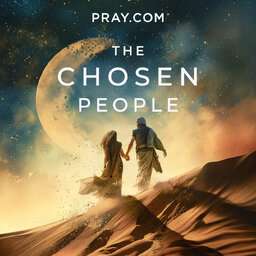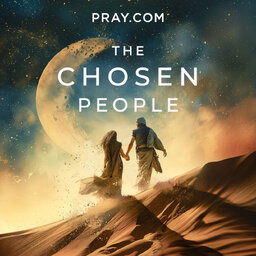Moses in Midian
# 67 - Moses in Midian - In this episode of The Chosen People with Yael Eckstein, Moses finds refuge in the land of Midian, where an act of kindness changes his life forever. In this episode, we explore themes of exile, identity, and the unexpected ways God provides purpose in the wilderness.
Episode 67 of The Chosen People with Yael Eckstein is inspired by the Book of Exodus.
Sign up for The Chosen People devotionals at https://www.thechosenpeople.com/sign-up
For more information about Yael Eckstein and IFCJ visit https://www.ifcj.org/
Today's opening prayer is inspired by Isaiah 58:11, "The LORD will guide you always; he will satisfy your needs in a sun-scorched land and will strengthen your frame."
Listen to some of the greatest Bible stories ever told and make prayer a priority in your life by downloading the Pray.com app.
Show Notes:
(02:17) Intro with Yael Eckstein
(03:59) Moses in Midian - Cinematic Retelling
(30:01) Reflection with Yael Eckstein
 The Chosen People
The Chosen People


